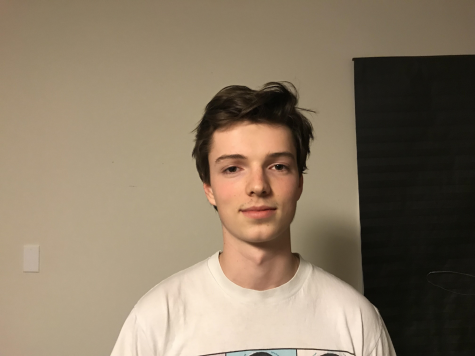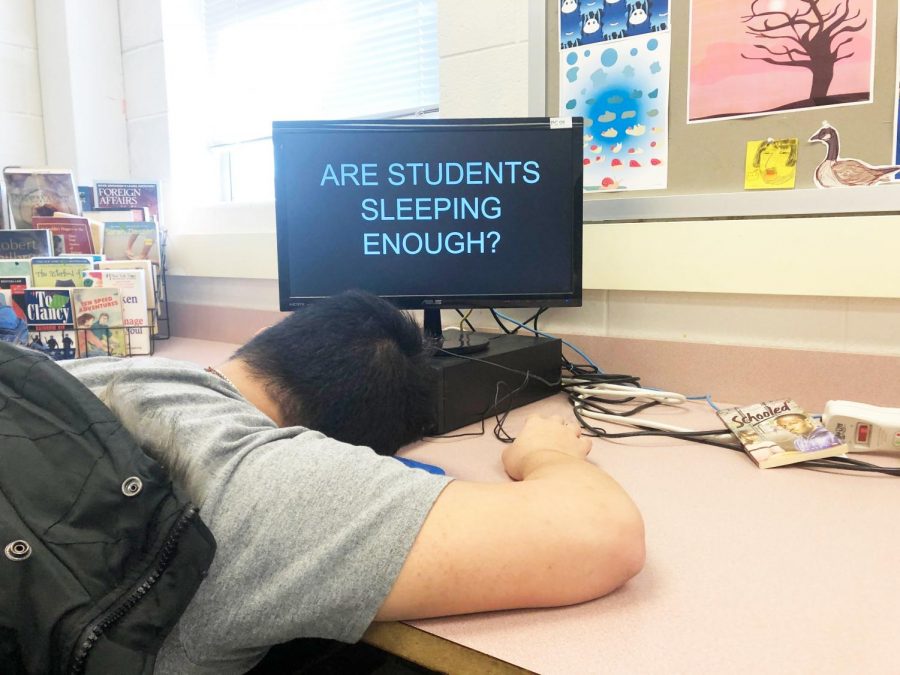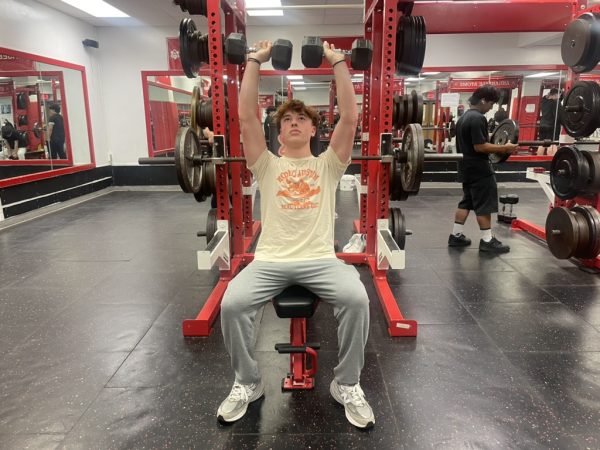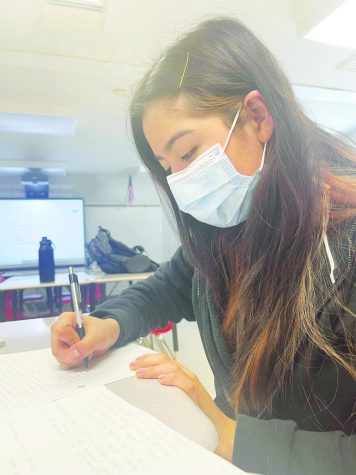School work is keeping students up late
During sleep, muscles repair themselves, memories are solidified, hormones are produced and released, and the body even grows.
Sleep is an essential part of the cyclical lifestyle of humans because it serves as a time for the body to regenerate after being worn down by the tasks of the day.
The average teen needs at least eight hours of sleep a night to function properly the next day, but most teens get significantly less than that. This affects their ability to perform in school and causes stress and anxiety.
“I have to work late nights sometimes and the next morning is always a battle,” said senior Mitchell Eggert.
Sleep is essential for the brain. The brain is one of the hardest working organs in the body, needing sufficient nutrition and rest to maintain itself.
However, when you sleep, your brain is not “off.” During sleep, the brain strengthens necessary neural connections and gets rid of unneeded ones. This essentially means that the brain will work to help you remember certain things that are important to you while getting rid of unneeded information.
In recent years, scientists have discovered that the brain is more efficient at clearing toxins when you are asleep. One of the most important toxins that get cleared is the β-amyloid protein, which has been linked to Alzheimer’s. Proteins such as β-amyloid build up in the brain during the day and the brain will clear them out during the night.
The lymphatic system opens up during sleep and the space between brain cells expand, allowing the brain to more easily get rid of the bad proteins and fluids that can inhibit the brain’s function.
Along with the brain, the body needs sleep to function properly. Not getting enough sleep can lead to physical complications such as a weak immune system and a higher risk of high blood pressure.
This works in turn with the brain because the brain gives the body signals to repair during sleep.
When sleep is shortened, the body does not get a chance to properly communicate these signals, leading to complications. Prolonged sleep deprivation can even lead to diabetes, as the body regulates blood sugar at night and not getting enough sleep leads to higher levels of blood sugar overall.
The average high school student gets around six or seven hours of sleep a night. In fact, 87% of students are considered sleep deprived by the National Sleep Foundation, who’s last survey was in 2016.
It is likely that this percentage has risen in recent years as a result of the availability of electronics.
Students struggle to focus when they get less than eight hours because the brain can’t properly decipher and retain information as well. “You’re a lot sleepier in class and you end up not as focused on your school performance, making your attitiude worse,” said senior Anthony Pham.
The analogous relationship between lack of sleep and weak academic performance is almost unanimously accepted by students and teachers, yet many teachers assign copious amounts of homework which result in a lack of sleep.
Although this may be a product of the curriculum or simply a “perfect storm” of work, the clear result is zombie-like students who fall asleep in class, or even doze off in the hallways. “I’m one of those people that come home and does homework right away, but every once in a while I have to pull late nights anyways,” senior Salvon Simmavong said.
However, some teachers believe that students should be able to balance their schedule without losing sleep. But many teachers fail to realize the size of a students workload.
So are students getting enough sleep? The short answer is no. Students average around six to seven hours of sleep when a teen should average around eight to ten hours of sleep.
The schedule requirements on the average student make it nearly impossible to get the ideal amount of sleep as students must wake up early, working for most of the day (including homework into the nighttime).
Methods for solving this issue have varied from productivity tips to changing school start times but one thing remains certain, students need more sleep.

Senior Nathan Ferson is in his first year at The A-Blast writer as the Academics Editor. He is a member of the Green Atoms and the Red Cross club. He enjoys...












